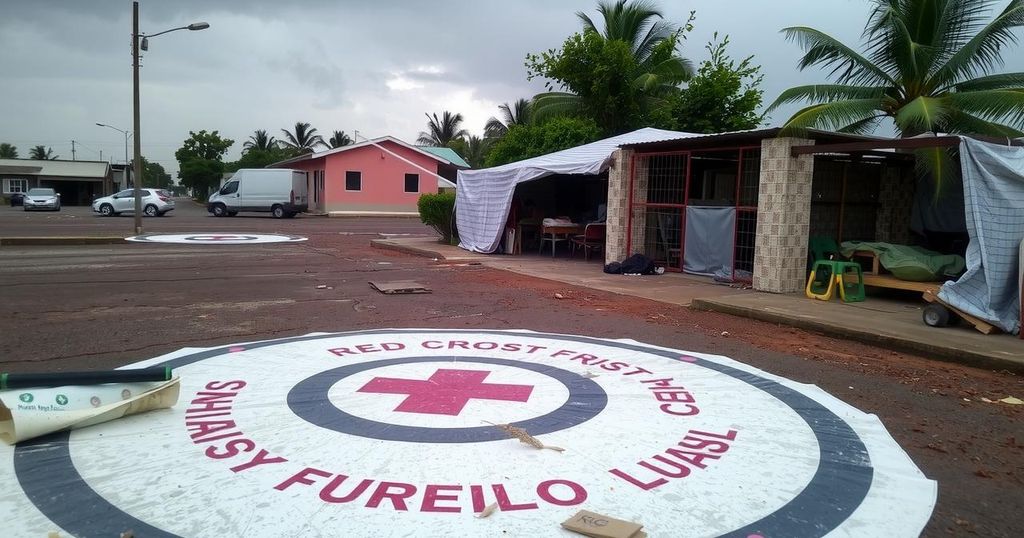Red Cross Response to Cyclone Chido Highlights Urgent Humanitarian Needs

Cyclone Chido made landfall in Mozambique on December 15, 2024, causing widespread destruction and affecting over 622,000 people across multiple countries. Red Cross teams are actively engaged in rescue operations, and the IFRC has launched a 10 million Swiss franc Emergency Appeal to support recovery and enhance disaster preparedness for future cyclones.
The tropical cyclone season in the South-West Indian Ocean commenced with Cyclone Chido making landfall in Mozambique on December 15, 2024, resulting in widespread devastation across several countries. Heavy rains and winds affected Madagascar, Comoros, Mozambique, Mayotte, and Malawi, leading to loss of life and significant destruction of infrastructure, including homes, roads, and communication networks. Current estimates indicate that nearly 622,000 individuals in Mozambique have been impacted, with many more affected in neighboring nations.
Naemi Heita, the Head of the International Federation of Red Cross and Red Crescent Societies (IFRC) Country Cluster Delegation for Mozambique and Angola, remarked that the full extent of the damage remains to be assessed. She expressed concern regarding the increasing needs for shelter, potable water, food, and health services as emergency teams gain access to remote areas. Early evaluations showed that in Mozambique alone, over 130,000 shelters were either damaged or destroyed, while the cyclone’s impact extended to more than 64,000 individuals in Comoros, 45,000 in Malawi, and around 35,000 houses in Mayotte.
In light of this crisis, Red Cross teams have been deployed to support rescue efforts and assist affected communities. The IFRC has initiated an Emergency Appeal, seeking to raise 10 million Swiss francs to provide comprehensive aid to 100,000 people across the implicated regions. The assistance will include cash grants, shelter options, healthcare services, and essential supplies. Moreover, the initiative aims to bolster community resilience against future weather events, reaching 500,000 individuals in at-risk areas by improving early warning systems and pre-arranging emergency resources.
Efforts are now in place to ensure that those affected receive immediate relief while also preparing communities for the anticipated continuation of the cyclone season. By enhancing disaster preparedness and response capacities, the IFRC is committed to mitigating the impacts of future natural disasters in this vulnerable region.
The South-West Indian Ocean experiences a cyclone season that poses significant risks to many countries in the vicinity. Cyclone Chido, which struck Mozambique in December 2024, is indicative of the growing challenges faced in these regions, particularly with climate change increasing the intensity and frequency of such natural disasters. The aftermath of cyclones often results in severe humanitarian crises, marked by destruction of infrastructure and disruption of basic services.
The response to Cyclone Chido highlights the critical need for robust disaster preparedness and timely humanitarian assistance in the face of natural calamities. With the onset of the cyclone season, proactive measures by the IFRC and Red Cross teams are imperative in alleviating suffering and fostering resilience among affected communities. The Emergency Appeal aims not only to provide immediate relief to those impacted but also to ensure future preparedness for similar disasters, thereby safeguarding lives and livelihoods in the region.
Original Source: reliefweb.int






